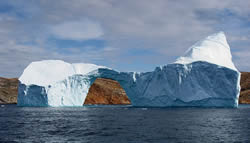 For so long I had heard that one should drink at least eight 8-ounce glasses of water every day, but I never actually did it, until the past few of weeks. I can verify that my weight loss has increased since doing so.
For so long I had heard that one should drink at least eight 8-ounce glasses of water every day, but I never actually did it, until the past few of weeks. I can verify that my weight loss has increased since doing so.
Health Benefits of Water
Every system in your body depends on water. This essential fluid
- Helps prevent disease by removing toxins
- Regulates body temperature
- Protects organs and tissues
- Lubricates joints
- Moistens tissues such as those in the eyes, nose, and mouth
- Lessens the burden on the kidneys and liver by flushing out the toxins
- Helps prevent constipation
- Carries nutrients and oxygen to the cells
- Helps dissolve minerals and other nutrients to make them accessible to the body
- Keeps your skin clearer, smoother, and younger looking
It also suppresses appetite and is essential to keep your metabolism running efficiently.
Drinking Water Briefly Increases Metabolism
In 2003, a small study “Water-induced thermogenesis” was published in the Journal of Clinical Endocrinology and Metabolism, which showed that drinking 500 ml (a little more than 2 cups of water) did increase the metabolic rate by 30%, which occurred within 10 minutes and reached a maximum after 30 to 40 minutes. About 40% of the metabolic increase originated from warming the water from 22 to 37 degrees Celcius (71.6 to 98.6 degrees Fahrenheit). Interestingly, men’s and women’s bodies reacted differently. While men’s bodies used lipids to mainly fuel the increase in metabolic rate, women’s bodies used carbohydrates as the main energy source.
Based on the study, drinking two liters (8.5 cups) of water per day would burn about 96 extra calories (400 kJ). The general recommendation for water consumption is between 8 and 12 glasses per day. However, each person has her own needs, depending on various factors.
How Much Water Is Enough?
Proper hydration is necessary to keep your body running efficiently. Since we lose water through our breath, perspiration, urine, and bowel movements, for proper functioning of the body, we have to replenish the water we’ve lost through the liquids we drink and the food we eat. If you are thirsty, you may already be dehydrated. Each individual’s needs vary as to how much water to drink. Temperature, humidity, activity, altitude, health, pregnancy, and breast-feeding all affect hydration needs.
According to the Mayo Clinic article “Water: How much should you drink every day?,” there are three approaches to replenish water for adults living in a temperate climate: the replacement approach, eight 8-ounce glasses of water a day, and dietary recommendations. The replacement approach (replace the fluids lost) and the eight 8-ounce glasses of water a day approach both say drink almost the same amount: 2 liters and 1.9 liters, respectively. However, the dietary recommendations of the Institute of Medicine say that men should drink about 3 liters (about 13 cups) of total beverages a day and women should drink about 2.2 liters (about 9 cups) of total beverages a day. Of course with any of these approaches, if you are losing more water, you will need to drink more.
Another approach to hydration is to drink enough water to quench your thirst and to produce 1.5 liters (6.3 cups) or more of colorless or slightly yellow urine a day. This is certainly a great guide to follow.

Jillian Michaels, a trainer on The Biggest Loser, offers her own advice in her book Making the Cut: The 30-Day Diet and Fitness Plan for the Strongest, Sexiest You
. She says that women should consume 80 ounces ( 10 cups or 2.4 liters), and men should consume 120 ounces (15 cups or 3.5 liters). If you are exercising and sweating, you definitely will need to drink more. She recommends drinking 12 ounces of water two hours before the workout and another 12 ounces 30 minutes before you begin. Also, during exercise, make sure to drink 4 to 8 ounces every 15 minutes. Once the workout is over, be sure to drink another 12 ounces within 30 minutes of the end of exercising.
Although it is uncommon, it is possible to drink too much water. Typically, endurance athletes, like marathoners, are more at risk because they drink large amounts of water, especially when the body is dehydrated. This dilutes the electrolyte (mineral) content of the blood, resulting in low sodium levels (hyponatremia). In these cases, it is best to consume a sports drink to replenish the electrolytes.
My Experience
I started keeping a graduated pitcher of water in the refrigerator to monitor my water intake. Since it’s getting warmer, I drink about twelve 8-ounce glasses of water per day, more if I’m exercising. For the past three weeks that I’ve been keeping track of water consumption, I’ve lost more weight than in previous weeks. I am convinced that proper hydration is a contributing factor.
Related Articles:
Boost Your Metabolism to Help Lose Weight – Part 1
Boost Your Metabolism – Part 2: The Case Against Too Much Added Sugar
I knew there were benefits to drinking water – thanks for this post. Now if I can just get myself to drink more!
Your welcome, Lynn. I never used to drink that much water, so it was a little difficult for me to start. However, keeping a graduated container of water in the refrigerator has really helped me monitor my intake.